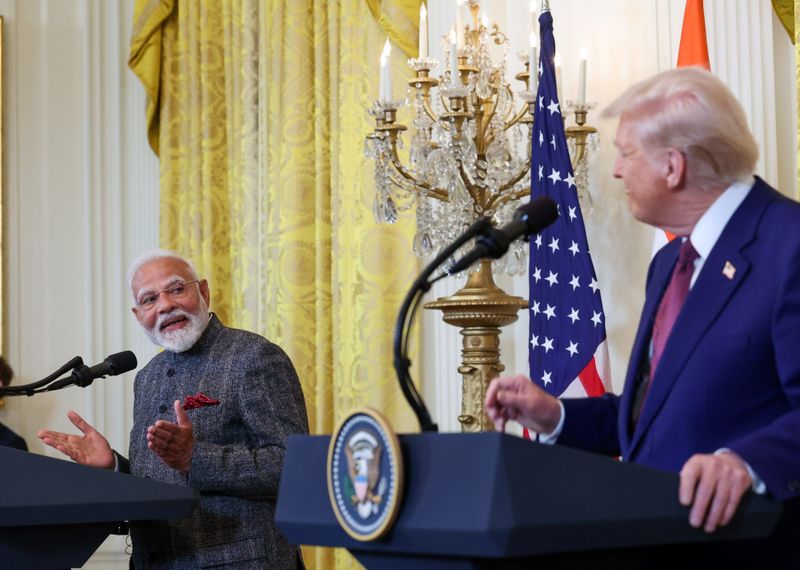
Hours after Prime Minister Narendra Modi engaged in bilateral talks with Chinese President Xi Jinping and Russian President Vladimir Putin at the Shanghai Cooperation Organisation summit in Tianjin, former U.S. President Donald Trump reignited the ongoing tariff dispute between India and the United States. Trump claimed that India had proposed to eliminate tariffs on U.S. goods, but he dismissed the offer as belated.
Trump took to Truth Social to express his views, stating, “They (India) have now offered to cut their tariffs to nothing, but it’s getting late. They should have done so years ago.” The Indian government has not issued a formal response to Trump’s assertions.
Historical Context of India-US Trade Relations
Trump’s comments highlight long-standing tensions in India-U.S. trade relations, which he described as a “one-sided business.” According to Trump, U.S. businesses face significant challenges in penetrating the Indian market due to high tariffs imposed by New Delhi.
He elaborated, “What few people understand is that we do very little business with India, but they do a tremendous amount of business with us. In other words, they sell us massive amounts of goods — their biggest client — but we sell them very little. Until now, it’s been a totally one-sided relationship, and it has been for many decades.”
The former president further criticized India’s tariff policies, claiming they are the highest of any country, which has led to a “totally one-sided disaster” for U.S. businesses trying to enter the Indian market.
Impact of Tariffs and Geopolitical Considerations
Trump’s remarks also touched upon India’s trade relations with Russia, particularly in the oil and military sectors. He criticized New Delhi for its substantial purchases from Russia, stating, “India buys most of its oil and military products from Russia, very little from the US.”
The Trump administration had previously imposed 25 percent reciprocal tariffs on India, with an additional 25 percent levied due to India’s purchases of Russian oil, bringing the total duties to 50 percent. These tariffs are among the highest imposed by the U.S. on any country.
India has consistently labeled these tariffs as “unjustified and unreasonable,” reflecting the broader geopolitical tensions and trade disagreements between the two nations.
Expert Opinions and Future Implications
Trade experts suggest that while India’s offer to reduce tariffs could be a step towards mending trade relations, the timing and effectiveness of such measures remain uncertain. According to Dr. Anjali Patel, a trade analyst, “The offer to cut tariffs is significant, but the geopolitical landscape has shifted considerably since Trump’s presidency. The current administration may approach these negotiations differently.”
Meanwhile, the Biden administration has yet to publicly respond to India’s tariff proposal. Analysts predict that any changes in trade policy will likely consider broader strategic interests, including alliances and regional stability.
As India continues to navigate its complex trade relationships with both the U.S. and Russia, the implications of these developments could have far-reaching consequences for global trade dynamics. The situation remains fluid, with potential impacts on international markets and diplomatic relations.
Looking ahead, the resolution of these trade disputes will require careful negotiation and consideration of both economic and geopolitical factors. The world watches as India and the U.S. explore pathways to a more balanced trade partnership.






